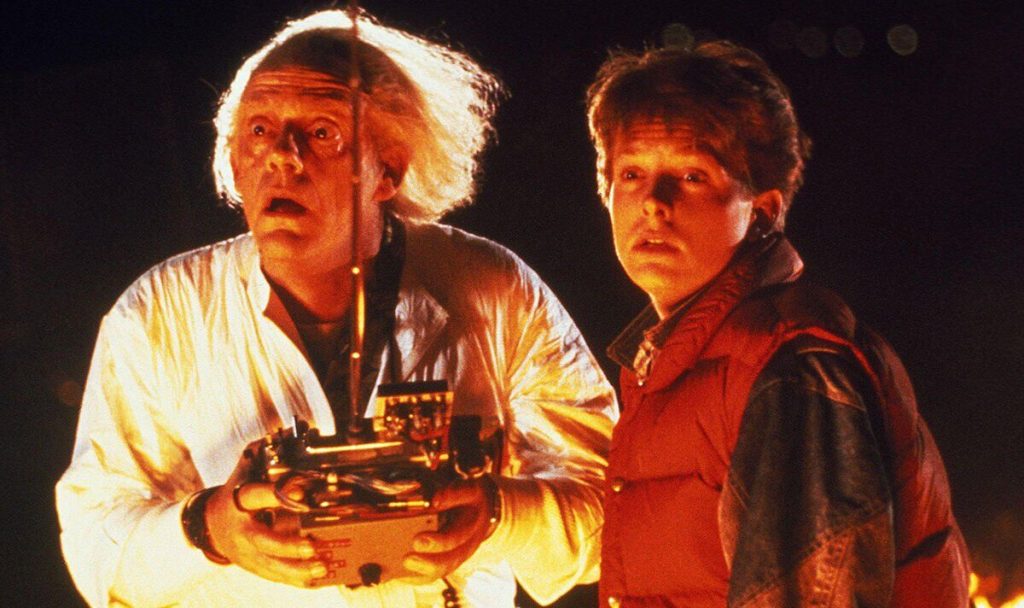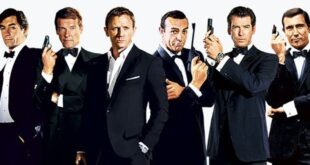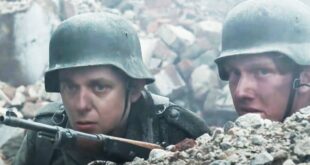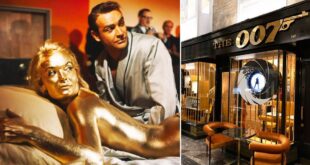
This past week Back to the Future Day has been celebrated by fans around the world.
Now 38 years old, the franchise continues to grow and develop through different mediums to this day, from comic books and video games to the award-winning stage musical.
The latter, which opened in London’s West End in 2021, debuted on Broadway this year with plans for tours and international shows around the world still afoot.
Express.co.uk recently caught up with the franchise’s official historian Michael Klastorin, who was a unit publicist on the sequel movies and had the privilege of being present on set every day of production on Parts II and III.
He was even lucky enough to have a cameo in the third film as Townsman #1, greeting Michael J Fox’s Marty McFly the morning after he agreed to a duel with Mad Dog Tannen in 1885.
Aside from penning two episodes of the animated TV series back in the 1990s, in recent years he’s authored two books: Back to the Future The Ultimate Visual History and Creating Back to the Future The Musical.
The second charts the 14 year adventure against all the odds to get the first movie adapted into a stage musical.
It’s an incredible story of how it was almost cancelled before Covid-19 shut it down after barely having begun performances. Not to mention, the unprecedented opening night (which we attended) where Doc Brown’s understudy had to go on at short notice due to star Roger Bart having tested positive for coronavirus. Nevertheless, the creative team behind it all managed to pull it off spectacularly despite all these challenges.
And now speaking in an exclusive interview, Klastorin shared some of the amazing movie trilogy Easter eggs hidden in the stage show.
The Back to the Future historian shared how the trilogy’s producer and screenwriter Bob Gale “was very, very diligent about not keeping something just because it was ‘so sacred’.” As his book on the musical charts, this meant removing certain elements from the original movie to streamline the story and replace them with inventive twists to play better onstage.
Gone were the likes of Einstein and baby Uncle Joey (after all, they say never work with children and animals) but as a result some great Easter eggs were included instead. Since a car chase with the Libyan nationalists wouldn’t work on stage, a tribute to this moment in the movie is found in Doc’s 1955 lab.
Klastorin told us that on a shelf there’s a box labelled “pinball machine parts”. Fans will know this is a reference to what the eccentric inventor gave the Libyans in exchange for the plutonium he needed for his time machine, instead of making them a bomb.
Also in the lab is a banner to a place called Clayton Canyons, which is of course a reference to Part III’s Clara Clayton, Doc’s future wife from 1885. If that wasn’t enough, a deleted scene from the first movie was incorporated into the musical’s storyline too.
At the start of the first Back to the Future movie, a wrecked car is pulled up to the driveway of the McFly home.
To save having an exterior set, this was cut with the action beginning immediately inside the house in an altercation between Biff and George McFly.
In a deleted scene from the first film, the latter had given in to buying peanut brittle for a bullying co-worker’s kid at the door.
Now in the musical, Biff extorts the same candy from George on behalf of the child, taking a generous “commission” for himself from the sale.
This story and many more feature in Creating Back to the Future: The Musical by Michael Klastorin, which is out now.

 Latest Breaking News Online News Portal
Latest Breaking News Online News Portal




